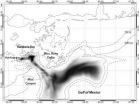(Press-News.org) They may have tiny brains, but bumblebees are capable of some remarkable learning feats, especially when they might get a tasty reward, according to two studies by University of Guelph researchers.
PhD student Hamida Mirwan and Prof. Peter Kevan, School of Environmental Sciences, are studying bees' ability to learn by themselves and from each other.
In the first study, published in February in Animal Cognition, the researchers found bees capable of learning to solve increasingly complex problems.
The researchers presented bees with a series of artificial flowers that required ever-more challenging strategies, such as moving objects aside or upwards, to gain a sugar syrup reward.
When inexperienced bees encountered the most complex flower first, they were unable to access the syrup reward and stopped trying. Bees allowed to progress through increasingly complex flowers were able to navigate the most difficult ones.
"Bees with experience are able to solve new problems that they encounter, while bees with no experience just give up," said Mirwan.
She and Kevan consider the study an example of scaffold learning, a concept normally restricted to human psychology in which learners move through increasingly complex steps.
In a second study recently published in Psyche, the researchers found bees learned by watching and communicating with other bees, a process called social learning.
Mirwan made artificial flowers requiring the bees to walk on the underside of a disk to get a sugar syrup reward. These experienced bees foraged on the artificial flowers for several days until they became accustomed to feeding at them.
To see whether other bees could learn from the experienced foragers, Mirwan confined inexperienced bees in a mesh container near the artificial flowers where they could observe the experienced bees. When the naïve bees were allowed to forage on the artificial flowers, they took just 70 seconds to get the reward.
Control bees that had not observed the experienced bees could not access the syrup.
"Social learning in animals usually involves one individual observing and imitating another, although other kinds of communication can also be involved," said Mirwan.
"They could try for up to 30 minutes, but most gave up before then."
In a final test, Mirwan placed experienced bees in a hive with naive bees. When the naive bees were allowed to forage on the artificial flowers, they gained the syrup in just 3.5 minutes.
Behavioural scientists usually assume that observation and imitation are at the heart of social learning, but social insects such as bees can also transmit information through touch, vibration and smell.
The researchers said the communication method used by the bees is still a mystery.
"We can't quite explain how bees that had never even seen an artificial flower were able to become adept so quickly at foraging on them, but clearly some in-hive communication took place," said Kevan.
"It suggests that social learning in bumblebees is even more complex than we first expected."
INFORMATION:
For media questions, contact Communications and Public Affairs: Lori Bona Hunt, 519-824-4120, Ext. 53338, or lhunt@uoguelph.ca; or Kevin Gonsalves, Ext. 56982, or kgonsalves@uoguelph.ca.
Bees capable of learning feats with tasty prize in sight
2014-03-18
ELSE PRESS RELEASES FROM THIS DATE:
Sauder research shows why innovation takes a nosedive
2014-03-18
A new UBC study reveals that corporate leaders are victims of herd mentality when adopting new innovations, sometimes with deadly consequences.
The paper, by Sauder School of Business Associate Professor Marc-David L. Seidel and INSEAD Professor Henrich R. Greve, shows leaders tend to pursue innovations, even as complex as airplanes, based on early adoption by competitors not close scrutiny of the technical merits.
"Business leaders tend to panic when new innovations are about to hit the market. They scramble to buy an apparent early leader," says Seidel. "Sometimes ...
Stanford researchers survey protein family that helps the brain form synapses
2014-03-18
Neuroscientists and bioengineers at Stanford are working together to solve a mystery: how does nature construct the different types of synapses that connect neurons -- the brain cells that monitor nerve impulses, control muscles and form thoughts.
In a paper published in the Proceedings of the National Academy of Sciences, Thomas C. Südhof, M.D., a professor of molecular and cellular physiology, and Stephen R. Quake, a professor of bioengineering, describe the diversity of the neurexin family of proteins.
Neurexins help to create the synapses that connect neurons. Think ...
TGen-led study spotlights dog DNA role in developing new therapies for human cancers
2014-03-18
PHOENIX, Ariz. — March 17, 2014 — Using genomic analysis to study cancer in dogs can help develop new therapies for humans with cancer, according to a proof-of-concept study led by the National Cancer Institute (NCI) and the Translational Genomics Research Institute (TGen).
Pure-breed dogs, whose genetics have been standardized by hundreds of years of human intervention, provide highly predictable genetic models useful in designing clinical trials, in which specific drugs are matched to the molecular profiles of human patients, according to the study published today in ...
Kessler Foundation researchers link body temperature to relapsing-remitting MS and fatigue
2014-03-18
West Orange, NJ. March 18, 2014. Kessler Foundation researchers have demonstrated for the first time ever that body temperature is elevated endogenously in relapsing-remitting multiple sclerosis (RRMS) and linked to worse fatigue. The article was published ahead of print on Feb. 21, 2014 in Archives of Physical Medicine & Rehabilitation. Sumowski J, Leavitt V: Body temperature is elevated and linked to fatigue in relapsing-remitting multiple sclerosis, even without heat exposure. doi:10.1016/j.apmr.2014.02.004.
Researchers measured body temperature in 50 patients with ...
NIST chips help BICEP2 telescope find direct evidence of origin of the universe
2014-03-18
The view back in time—way back to the origins of the universe—just got clearer. Much clearer.
A team of U.S. cosmologists using the BICEP2 telescope at the South Pole announced this week that they have discovered the first direct evidence of the rapid inflation of the universe at the dawn of time, thanks in part to technology developed and built by the National Institute of Standards and Technology (NIST).
The BICEP2 camera relies, in part, on the extraordinary signal amplification made possible by NIST's superconducting quantum interference devices (SQUIDs).
The ...
NRL models Deepwater Horizon oil spill
2014-03-18
Dr. Jason Jolliff is an oceanographer with the U.S. Naval Research Laboratory (NRL). "The emphasis here," he says, "is on developing models of the ocean environment to help the naval warfighter." His most recent paper, published in Ocean Modeling (March 2014), shows NRL can also forecast where oil will go following a major spill.
"If you're going to do forecasting," he says, "you have to get the ocean circulation correct. It's fundamental to all else." Jolliff plugged the distribution of surface oil following the 2010 Deepwater Horizon oil spill—when it was still well ...
Canadian drinking-age laws have significant effect on deaths among young males
2014-03-18
A recent study by a University of Northern British Columbia-based scientist associated with the UBC Faculty of Medicine and UNBC's Northern Medical Program demonstrates that Canada's drinking-age laws have a significant effect on youth mortality.
The study was published yesterday in the international journal Drug and Alcohol Dependence. In it, Dr. Russell Callaghan writes that when compared to Canadian males slightly younger than the minimum legal drinking age, young men who are just older than the drinking age have significant and abrupt increases in mortality, especially ...
Global food trade can alleviate water scarcity
2014-03-18
Trading food involves the trade of virtually embedded water used for production, and the amount of that water depends heavily on the climatic conditions in the production region: It takes, for instance, 2.700 liters of water to produce 1 kilo of cereals in Morocco, while the same kilo produced in Germany uses up only 520 liters. Analyzing the impact of trade on local water scarcity, our scientists found that it is not the amount of water used that counts most, but the origin of the water. While parts of India or the Middle East alleviate their water scarcity through importing ...
Using big data to identify triple-negative breast, oropharyngeal, and lung cancers
2014-03-18
Researchers at Case Western Reserve University and colleagues used "big data" analytics to predict if a patient is suffering from aggressive triple-negative breast cancer, slower-moving cancers or non-cancerous lesions with 95 percent accuracy.
If the tiny patterns they found in magnetic resonance images prove consistent in further studies, the technique may enable doctors to use an MRI scan to diagnose more aggressive cancers earlier and fast track these patients for therapy. Their work is published online in the journal Radiology at http://pubs.rsna.org/doi/full/10.1148/radiol.14131384. ...
Strongest evidence yet of 2 distinct human cognitive systems
2014-03-18
BUFFALO. N.Y. — Cognitive scientists may have produced the strongest evidence yet that humans have separate and distinct cognitive systems with which they can categorize, classify, and conceptualize their worlds.
"Our finding that there are distinct, discrete systems has implications for the fields of child development and cognitive aging," says lead researcher, cognitive psychologist J. David Smith, PhD, of the University at Buffalo.
"These distinct systems may have different developmental courses as the cortex matures," he says, "meaning that children may categorize ...






